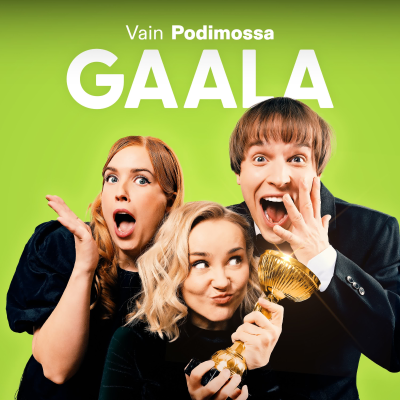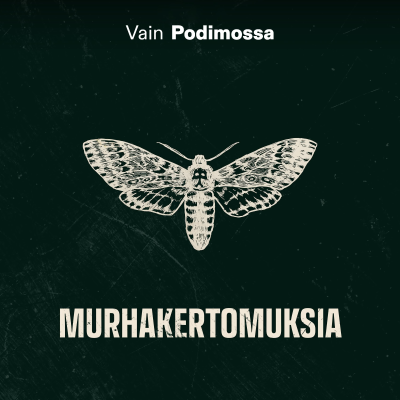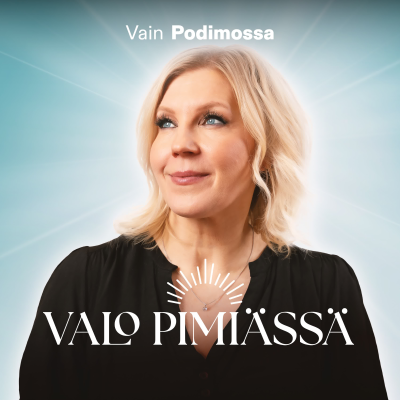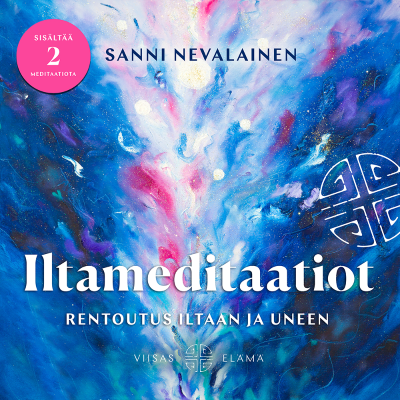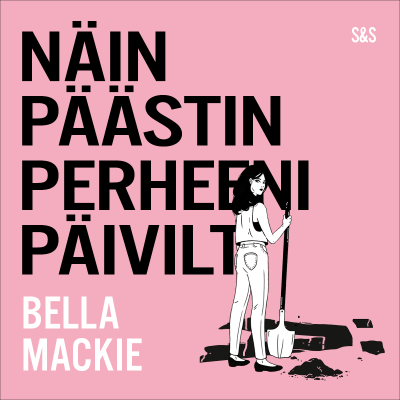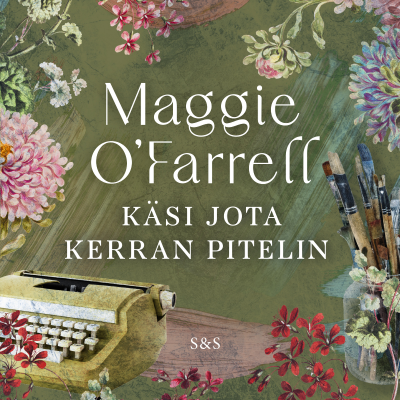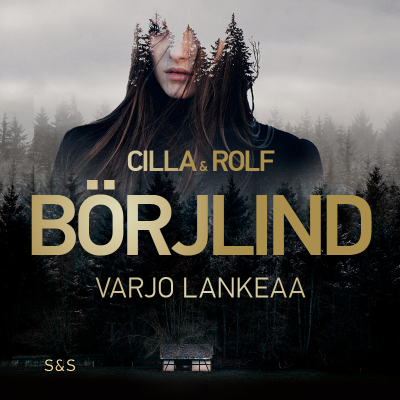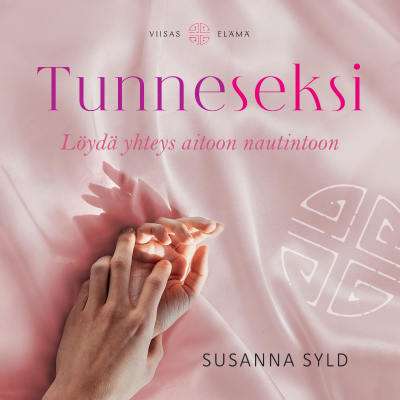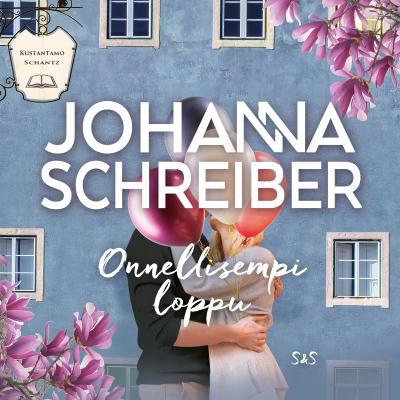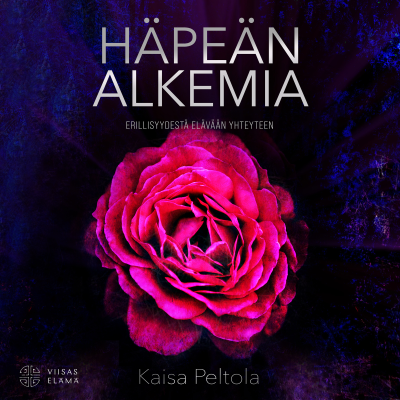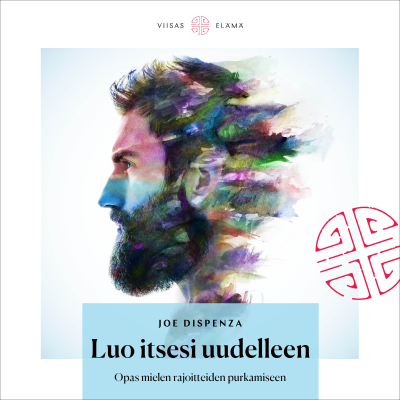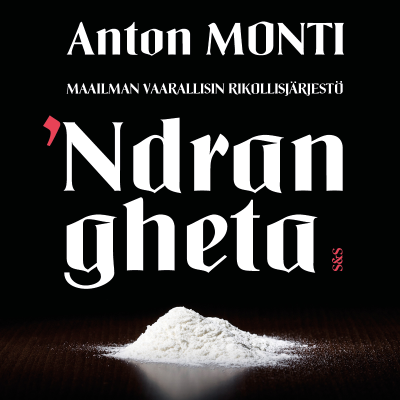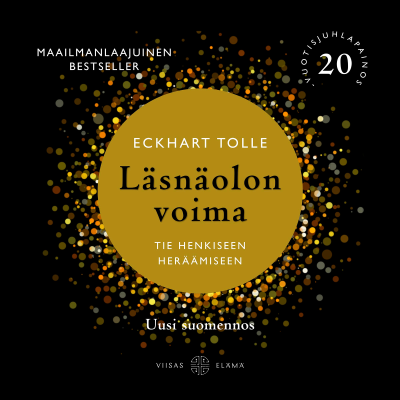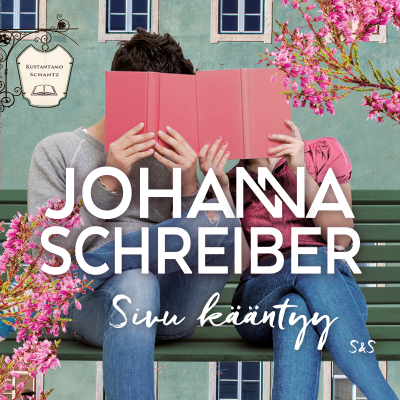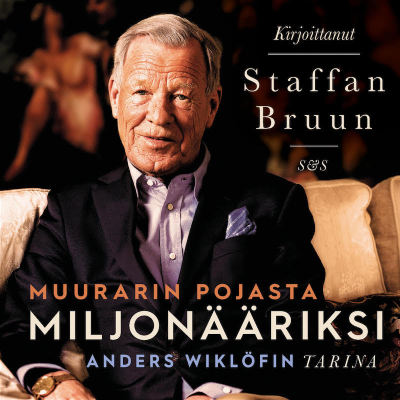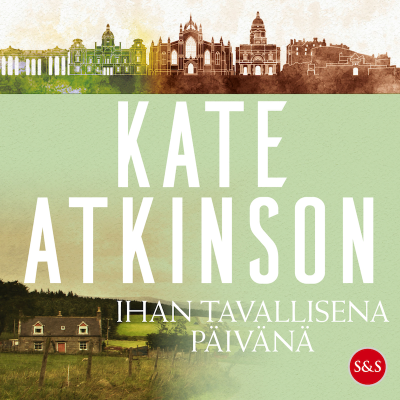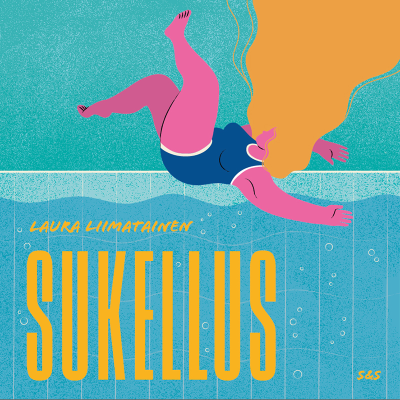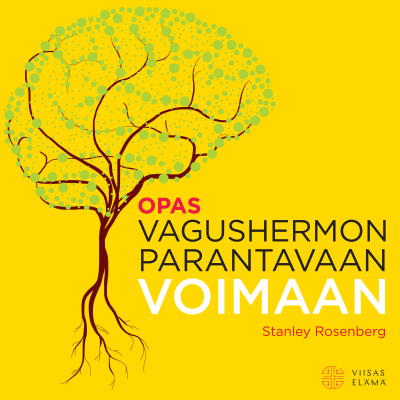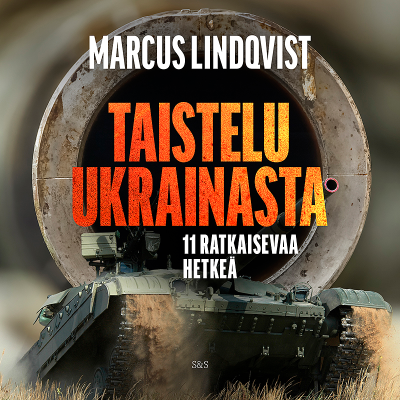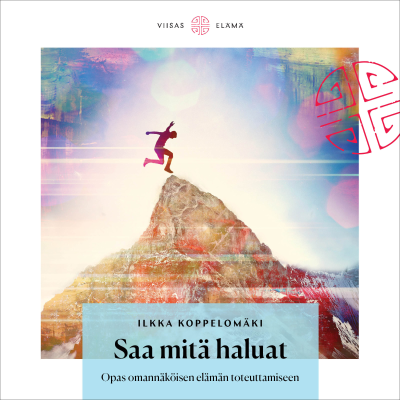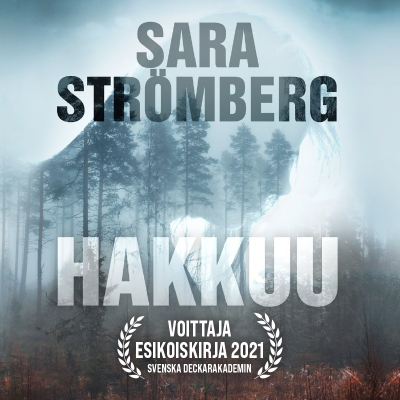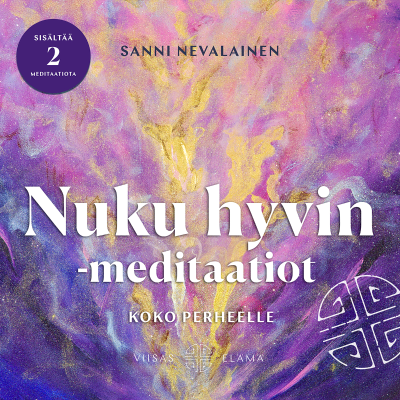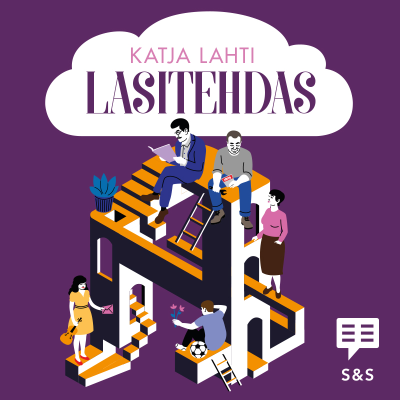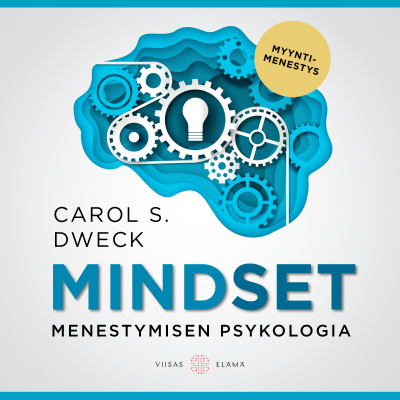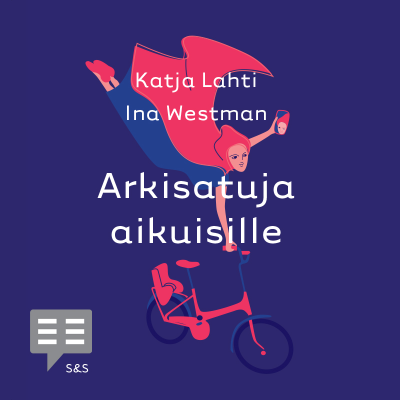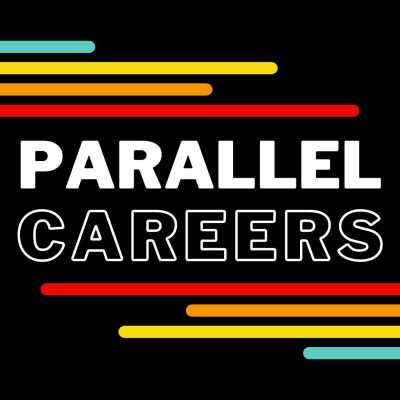
Parallel Careers
englanti
Kulttuuri & vapaa-aika
Rajoitettu tarjous
2 kuukautta hintaan 1 €
Sitten 7,99 € / kuukausiPeru milloin tahansa.
- Podimon podcastit
- Lataa offline-käyttöön
Lisää Parallel Careers
Parallel Careers is a monthly podcast about the dual lives of writers who teach. Few writers make their living from publication alone; many fill the gaps with teaching in both academic and community settings. Much of the work is precarious, and there are few opportunities for professional development. The podcast features writers with diverse practices and points of view—writers who are at the top of their game in both craft and pedagogy. Tune in to hear the big ideas and practical tips they take into their classrooms. Take their insights into your own class or craft.
Kaikki jaksot
25 jaksotEpisode 12 | Kim Pittaway
“It's essential when we're writing non-fiction for it to be non-fiction. My experience has always been that f**king with the facts f**ks with the emotion. And so sometimes it's because you think that fudging the facts will get you to the truth faster, or will get you to the emotion faster. But often what it gets you to is a surface emotion. False facts get you to false emotion. So sticking with the facts, trying to work your way on the page with the messiness of human experience brings more nuance to that emotional truth that you're trying to get at.” In this episode, Kim Pittaway shares strategies for writing non-fiction with emotional depth and why it’s essential for writers to learn how the publishing business works. She discusses: 0:00 | How mentoring should equip students with their own compasses 0:40 | Her work as Executive Director of the creative nonfiction program at University of King's College and the importance of learning the business side of writing alongside the craft 3:19 | Working with Toufah Jallow on her memoir Toufah: The Woman Who Inspired an African #MeToo Movement 9:20 | Developing the “idea plot” alongside the narrative drive of a creative nonfiction piece 12:15 | The challenge of interviewing people about traumatic events and the best practices she’s developed over her career 15:24 | Working through a shift in perspective when encountering an emotional gap in a piece 18:30 | Her essay, “After” and challenging conventional reporting on sexual violence 22:50 | Getting to nuanced, emotional truths when writing non-fiction Kim Pittaway is a cohort director in the MFA in Creative Nonfiction program at the University of King's College in Halifax, NS. She is an award-winning journalist with publication and broadcast credits that include Hazlitt, Chatelaine, Reader’s Digest, More Magazine, Best Health, Cottage Life, The Globe and Mail, The Toronto Star, CBC Radio’s The Current, Tapestry, and others. She is a recipient of the Outstanding Achievement Award from the Canadian National Magazine Awards Foundation (and an 8-time NMAF finalist), a co-winner of a Canadian Science Writers’ Association Award with her sister the journalist Tina Pittaway, and a finalist for the American Society of Journalists and Authors service writing award. She spent a decade working with a wide range of magazine and NGO clients developing online editorial strategies and content. She is the author, with Toufah Jallow, of Toufah: The Woman Who Inspired an African #MeToo Movement. She is also at work on a memoir with the working title Grudge: What We Learn from What We Can't Forgive. Check out her website [http://www.kimpittaway.com/]. You can find Kim’s work here: Toufah: The Woman Who Inspired an African #MeToo Movement [https://www.penguinrandomhouse.ca/books/670343/toufah-by-toufah-jallow-with-kim-pittaway/9780735282322] After [https://hazlitt.net/feature/after] The music you heard on this episode was composed by Amadeo Ventura. You can hear more of his music at amadeoventura.weebly.com. Visit TNQ.ca to access more of Kim Pittaway’s writing and teaching tips, including web extras about giving feedback and her forthcoming memoir on forgiveness. If you like our podcast, please leave a review—it really helps other listeners find our show! Thank you! Reading recommendations: The Power of Story: On Truth, the Trickster, and New Fiction for a New Era, by Harold R. Johnson Body Work: The Radical Power of Personal Narrative by Melissa Febos Dog Flowers by Danielle Geller In the Dream House by Carmen Maria Machado A Ghost in the Throat by Doireann ni Ghriofa Lost & Found by Kathryn Schulz They Said This Would be Fun by Eternity Martis How to Read Now: Essays by Elaine Castillo Small Things Like These by Claire Keegan
Episode 11 | Wayde Compton
“What I tell my students is that, you know, when they publish someday and work with an editor, it'll be a breeze. Because if you spent two years or more workshopping your work creatively, where you've got 20 people telling you their opinions about it and what they like about it, what they didn't like about it—that's far harder. What they're doing in, in a creative writing class is far harder than working with an editor later, where you're just getting one person's opinion. And I tell them, at this point, I'm like, if somebody has a piece of advice that will make this thing better, I'm taking it. I don't have any anxiety over influence or anything like that.” In this episode, Wayde Compton shares how he challenges conventional narrative structures and explains why it’s worth following your own particularities as a writer. He discusses: 0:54 | How working with Betsy Warland shaped his own thinking about teaching creative writing and the importance of fostering connections between students 2:37 | Reading reference books as a child and how it influenced the development of his story collection The Outer Harbour 8:26 | His book of essays After Canaan and his work on preserving the memory of Hogan’s Alley in Vancouver 13:38 | Why having a “writing buddy” is more valuable, in the long run, than having a mentor 14:46 | Exploring woodworking through haptics and creating tactile art that complements his writing projects 17:03 | How you never know how people are going to receive your work or how it's going to be useful to them 21:33 | An exercise inspired by Ursula Le Guin’s work where he asks students to start a fiction project by drawing a map Guest bio: Wayde Compton is the author of four books: 49th Parallel Psalm (finalist for the Dorothy Livesay Poetry Prize); Performance Bond; After Canaan: Essays on Race, Writing, and Region (finalist for the City of Vancouver Book Award); and The Outer Harbour (winner of the City of Vancouver Book Award). He has also edited two anthologies: Bluesprint: Black British Columbian Literature and Orature and The Revolving City: 51 Poems and the Stories Behind Them (finalist for the City of Vancouver Book Award). Compton is a co-founder of the Hogan’s Alley Memorial Project, an organization formed to raise awareness about the history of Vancouver’s Black community. He lives in Vancouver and has recently joined the faculty of Creative Writing at Douglas College in New Westminster, BC. The music you heard on this episode was composed by Amadeo Ventura. You can hear more of his music at amadeoventura.weebly.com. Visit TNQ.ca to access more of Wayde Compton’s writing and teaching tips, including web extras about reading local work and the importance of “finding your urgency.” If you like our podcast, please leave a review—it really helps other listeners find our show! Thank you! You can find Wayde’s work here: The Outer Harbour [https://arsenalpulp.com/Books/T/The-Outer-Harbour] After Canaan: Essays on Race, Writing, and Region [https://arsenalpulp.com/Books/A/After-Canaan] Performance Bond; After Canaan: Essays on Race, Writing, and Region [https://arsenalpulp.com/Books/P/Performance-Bond] 49th Parallel Psalm [https://arsenalpulp.com/Books/9/49th-Parallel-Psalm] Bluesprint: Black British Columbian Literature and Orature [https://arsenalpulp.com/Books/B/Bluesprint] The Revolving City: 51 Poems and the Stories Behind Them [https://www.anvilpress.com/books/the-revolving-city-51-poems-and-the-stories-behind-them] The Blue Road [https://arsenalpulp.com/Books/T/The-Blue-Road]
Episode 10 | Tanya Boteju
“I always say that I learned to be a writer by teaching. I didn't take a creative writing course in high school. I didn't take any creative writing courses in university. I really credit teaching writing with my knowledge of writing, which seems kind of backward, but having to understand writing enough to teach it, I felt like I knew enough about the writing process when I started writing Kings, Queens and In-Betweens enough to get something down on paper.” In this episode, Tanya Boteju shares her thoughts on writing for Young Adult audiences and how teaching writing equipped her with the skills to become a writer herself. She discusses: 1:09 | the importance of free-writing—how it’s informed her own practice and how she scaffolds the writing process for her students 3:34 | writing a book about joy and possibility set in the drag community in Kings, Queens and In-Betweens 7:57 | inviting previous students to be beta readers for both of her books (and getting feedback in emoji form) 9:31 | challenging ideas about strength in her second book, Bruised, and writing queer stories that move beyond coming-out narratives 15:54 | how writing in first-person to help you discover more about your characters and the unexpected details that can emerge from that 17:57 | balancing writing and teaching and being intentional with writing, even when you only have small chunks of time Guest bio: Tanya Boteju is an English teacher and writer living on unceded territories of the Musqueam, Squamish, and Tsleil-Waututh First Nations (Vancouver, Canada). Tanya is grateful for her patient wife, supportive family and friends, committed educators, sassy students, and hot mugs of tea. In both teaching and writing, she is committed to positive, diverse representation. About the podcast: Parallel Careers is a monthly podcast about the dual lives of writers who teach. Few writers make their living from publication alone; many fill the gaps with teaching in both academic and community settings. Much of the work is precarious, and there are few opportunities for professional development. Parallel Careers features writers with diverse practices and points of view—writers who are at the top of their game in both craft and pedagogy. Tune in to hear the big ideas and practical tips they take into their classrooms. Take their insights into your own class or craft. Credits: Parallel Careers is produced by Claire Tacon, in partnership with The New Quarterly magazine. Erin MacIndoe Sproule is our Technical Producer and Story Editor. Music composed by Amadeo Ventura. Financial and in-kind support provided by the Region of Waterloo Arts Fund, St. Jerome’s University, and the Government of Canada. The music you heard on this episode was composed by Amadeo Ventura. You can hear more of his music at amadeoventura.weebly.com. Visit TNQ.ca to access more of Tanya Boteju’s writing and teaching tips, including web extras about professional development and figurative language. If you like our podcast, please leave a review—it really helps other listeners find our show! Thank you! You can find Tanya’s work here: Bruised [https://www.simonandschuster.ca/books/Bruised/Tanya-Boteju/9781534455030] Kings, Queens, and In-Betweens [https://www.simonandschuster.ca/books/Kings-Queens-and-In-Betweens/Tanya-Boteju/9781534430662] Out Now [https://www.harlequintradepublishing.com/shop/books/9781488056925_out-now.html] edited by Saundra Mitchell Recommended reading: In the Key of Dale by Benjamin Lefebvre Boys and Girls Screaming by Kern Carter A Scatter of Light by Malinda Lo The Misewa Series by David A Robertson
Episode 9 | Liz Howard
“I certainly see the plasticity and the infinite possibilities there are within language as a way to expand the limits of the, the quote unquote world and a way to dream of another world where liberation is possible. And to try and, in some way, approach it in language as a way of possibly immanentizing it. Some people might think that's sort of anarchical or utopian, but I think that one needs the audacity to be able to dream of these things. And that is what I'm trying to do in language.” In this episode, Liz Howard shares her thoughts on the expansiveness of poetry and how it can be used as a tool for exploration, experimentation and interpretation: She discusses: 1:22 | how an old copy of Macbeth entrained her ear to the rhythm of language 3:47 | coming to see her writing as a conversation with the ancestral realm 5:00 | using enjambment to interrupt anecdotal poems in her first collection Infinite Citizen of the Shaking Tent, inviting the reader to pay closer attention 9:12 | invoking both Western astrophysical science and cosmology, as well as Indigenous, specifically Anishinaabe, sky knowledge in Letters in a Bruised Cosmos 11:14 | scavenging and thrifting language to produce a sort of haunting or a kind of echo within the text and how that resonates with her work in cognitive psychology 16:16 | adapting one of Dionne Brand’s writing exercises in her own classroom, inviting students to consider a sight of astonishment, an earliest memory and a moment of self-awareness 19:11 | her work at Inkwell and developing prompts from existing poems to explore situated-ness Guest Bio: Liz Howard’s debut collection Infinite Citizen of the Shaking Tent won the 2016 Griffin Poetry Prize, was shortlisted for the 2015 Governor General’s Award for poetry, and was named a Globe and Mail top 100 book. A National Magazine Award finalist, her recent work has appeared in Canadian Literature, Literary Review of Canada, Room Magazine and Best Canadian Poetry 2021. Her second collection, Letters in a Bruised Cosmos, was published by McClelland & Stewart in June 2021. Howard received an Honours Bachelor of Science with High Distinction from the University of Toronto, and an MFA in Creative Writing from the University of Guelph. She has completed creative writing and Indigenous arts residencies at McGill University, University of Calgary, UBC Okanagan, Douglas College, Sheridan College, and The Capilano Review. She is also an adjunct professor and lecturer in the Department of English at the University of Toronto and serves on the editorial board for Buckrider Books, an imprint of Wolsak & Wynn. She is of mixed settler and Anishinaabe heritage. Born and raised on Treaty 9 territory in Northern Ontario, she currently lives in Toronto. About the Podcast: Parallel Careers is a monthly podcast about the dual lives of writers who teach. Few writers make their living from publication alone; many fill the gaps with teaching in both academic and community settings. Much of the work is precarious, and there are few opportunities for professional development. Parallel Careers features writers with diverse practices and points of view—writers who are at the top of their game in both craft and pedagogy. Tune in to hear the big ideas and practical tips they take into their classrooms. Take their insights into your own class or craft. Credits: Parallel Careers is produced by Claire Tacon, in partnership with The New Quarterly magazine. Erin MacIndoe Sproule is our Technical Producer and Story Editor. Music composed by Amadeo Ventura. Financial and in-kind support provided by the Region of Waterloo Arts Fund, St. Jerome’s University, and the Government of Canada.
Episode 8 | Michael V. Smith
“Mostly when I'm teaching, I am trying really hard to get out of the way of the student's own creative process. So I don't want to dictate what students make. I like to give a writing prompt that invites them to source their own material, to give them a degree of choice in how they find what they want to write about. So I trust a lot in the unconscious, that the unconscious is just going to deliver something that has value for them. Because the unconscious doesn't like to waste its time.” In this episode, Michael V. Smith shares how he brings community-building tools into the academy and how memoir allows a writer to travel through time. He discusses: 0:55 | the benefits of valuing process over product in writing courses 3:43 | reconciling masculinity while writing My Body Is Yours 6:21 | the difference between the book you intend to write and the book you’ve actually written 8:38 | the impact of the slogan “silence equals death,” and how writing helps keep us alive 13:00 | queering the academy and embodying a brave space in the classroom 16:35 | his oral history project Soundtrack and capturing lived history on a scale that is often erased 22:03 | adapting a Lynda Barry exercise to help students build a setting and generate narrative Guest bio: Michael V. Smith is a writer [https://www.michaelvsmith.com/books/], performer [https://www.michaelvsmith.com/performance/], filmmaker [https://www.michaelvsmith.com/films/], and Associate Professor teaching Creative Writing in the interdisciplinary department of Creative Studies at UBC’s Okanagan campus in Kelowna, BC. Smith is an MFA graduate from UBC’s Creative Writing program. Smith has won a number of awards for both his writing and his short film work. His novel, Cumberland, [https://www.cormorantbooks.com/cumberland] was nominated for the Amazon/Books in Canada First Novel Award. Smith won the inaugural Dayne Ogilvie Award [https://www.writerstrust.com/awards/dayne-ogilvie-prize/]for Emerging Gay Writers. He’s won a Western Magazine Award for Fiction and was nominated for the Journey Prize. His videos have played around the world, and he has screened work at the British Film Institute, at the Lincoln Center with the New York Video Festival, and in the Vancouver International Film Festival. As a performer, Smith has played dozens of cabarets and festivals, including the 2011 Performance Studies International Conference in Utrecht, Netherlands, the Vancouver Comedy Festival, and an intervention with the Raumerweiterungshalle, Berlin. About the Podcast: Parallel Careers is a monthly podcast about the dual lives of writers who teach. Few writers make their living from publication alone; many fill the gaps with teaching in both academic and community settings. Much of the work is precarious, and there are few opportunities for professional development. Parallel Careers features writers with diverse practices and points of view—writers who are at the top of their game in both craft and pedagogy. Tune in to hear the big ideas and practical tips they take into their classrooms. Take their insights into your own class or craft.
Valitse tilauksesi
Rajoitettu tarjous
Premium
Podimon podcastit
Lataa offline-käyttöön
Peru milloin tahansa
2 kuukautta hintaan 1 €
Sitten 7,99 € / kuukausi
Premium
20 tuntia äänikirjoja
Podimon podcastit
Lataa offline-käyttöön
Peru milloin tahansa
30 vrk ilmainen kokeilu
Sitten 9,99 € / kuukausi
Premium
100 tuntia äänikirjoja
Podimon podcastit
Lataa offline-käyttöön
Peru milloin tahansa
30 vrk ilmainen kokeilu
Sitten 19,99 € / kuukausi
2 kuukautta hintaan 1 €. Sitten 7,99 € / kuukausi. Peru milloin tahansa.

